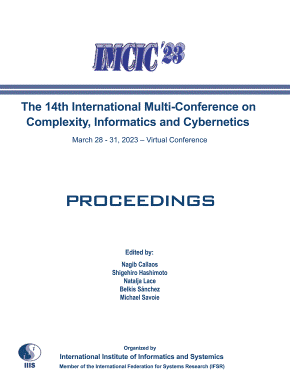2023 Spring Conferences Proceedings

|
Young Children With Autism Spectrum Disorder Learning Emotion-Recognition From Animated Media Content
Erin Ryan
Proceedings of the 14th International Multi-Conference on Complexity, Informatics and Cybernetics: IMCIC 2023, pp. 227-233 (2023); https://doi.org/10.54808/IMCIC2023.01.227
|
The 14th International Multi-Conference on Complexity, Informatics and Cybernetics: IMCIC 2023
Virtual Conference March 28 - 31, 2023 Proceedings of IMCIC 2023 ISSN: 2771-5914 (Print) ISBN (Volume): 978-1-950492-71-8 (Print) |
|
Abstract
Research suggests that children with Autism Spectrum Disorder (ASD) can learn executive functioning (EF) skills like emotion-recognition from media content such as Thomas the Tank Engine. Whereas those researchers posited the reason for such learning lies in idiosyncrasies related to ASD itself, this author argues the way media is crafted is the key element in determining successful learning. An interdisciplinary approach is needed to uncover how children with ASD can best learn from mediated content, especially regarding EF skills. By bridging Autism research with communication research, best practices for creating media content to teach EF skills to young children with ASD can be cultivated. A hybrid theory of cognitive capacity and multimedia learning by high-systemizers, in which elements from four theories focusing on working memory and the limitations of the cognitions of the viewers (Cognitive Load Theory, Limited Capacity Model of Motivated Mediated Message Processing, the Capacity Model, and the Cognitive Theory of Multimedia Learning) were combined, indicates that content creators must keep things simple in order to make a mediated character accessible to children with ASD. A small survey of parents of children with ASD bears this out; parents were asked about their child's relationship with media, what has been successful in their home, whether there are favorite programs/characters, and whether they believe their children are learning EF skills from media. Results indicated parents believe their children have special relationships with mediated characters they cannot duplicate with people. Some parents noted their children displaying better emotion-recognition after viewing. The formal characteristics of favorite programs indicate support for the hybrid theory of cognitive capacity and multimedia learning by high-systemizers.
|
||




